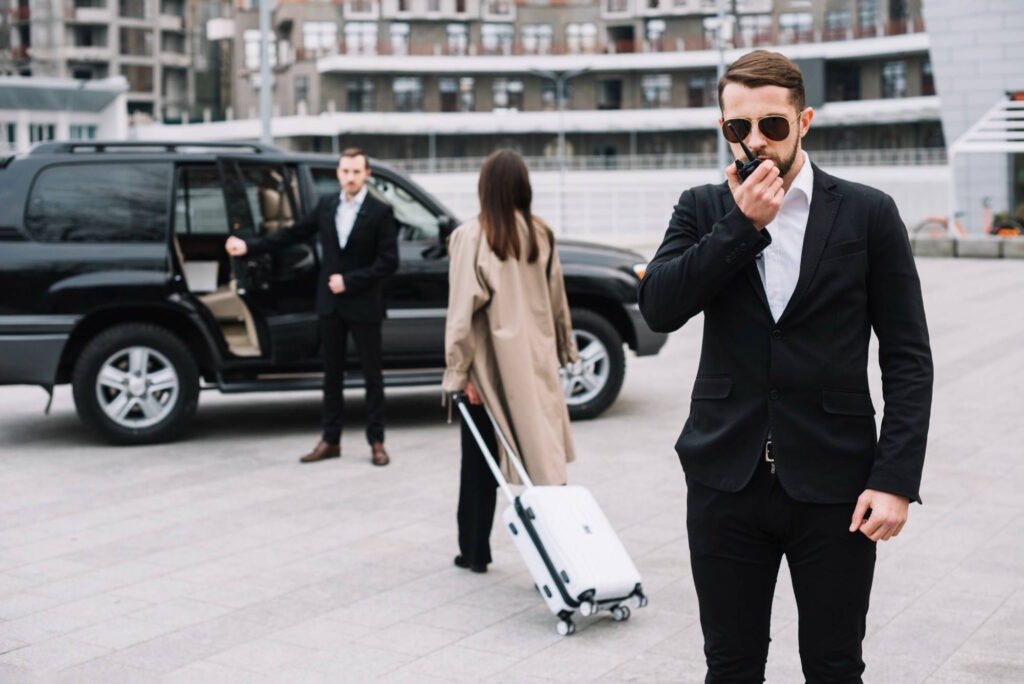Every year, thousands of foreign diplomats arrive in the United States. They come with their families to work at embassies, consulates, and international organizations. One of their first challenges is transportation. Many diplomats choose to drive. However, US roads, traffic laws, and driving customs can differ greatly from their home countries.
Diplomatic Driver’s Licensing
Foreign diplomats need a valid driver’s license to drive in the US. The State Department’s Office of Foreign Missions (OFM) issues these licenses. These special licenses work as both driving permits and official ID cards.
The Foreign Missions Act of 1982 gives the Secretary of State the power to manage diplomatic benefits. This includes driver’s licenses and vehicle registration. Diplomats must buy liability insurance with specific minimum amounts:
- $100,000 for injury to one person
- $300,000 for injuries in one accident
- $100,000 for property damage
- Or $300,000 combined coverage for everything
This insurance protects accident victims financially. If a diplomat with immunity causes an accident, victims can sue the insurance company directly. They don’t have to deal with complex immunity issues.
Understanding Immunity and Responsibility
Diplomatic immunity offers legal protections, but diplomats must still follow US traffic laws. The OFM tracks all diplomatic drivers’ records. They use a point system like individual states do.
When diplomats get traffic tickets, they should pay the fine or fight it in court. To appear in court, their mission must waive immunity in writing. Here’s how the point system works:
- Eight points in two years may trigger administrative action
- Twelve points will suspend your license
The State Department treats serious violations strictly. If police suspect a diplomat of drunk driving (DUI), the Department asks for an immunity waiver. This allows local courts to handle the case. If the mission refuses, the Department suspends driving privileges for up to one year. A second DUI offense usually forces the diplomat to leave the United States.
Adjusting to US Driving Customs
Diplomats often face new driving practices in the US. Here are the key differences:
Horn Use
Many countries use horns frequently for communication. In the US, drivers rarely use horns. Use your horn only for safety:
- To alert a driver who hasn’t seen you
- To warn of immediate danger
- To prevent an accident
Too much honking seems rude. Some cities even issue tickets for excessive horn use.
Turn Signals
Always use turn signals in the US. Signal every turn and lane change. Turn on your signal at least 100 feet before turning. Check that your intended lane is clear before moving.
Right of Way
Learn when to yield in the US. Pay special attention to:
- Pedestrian crossings
- School zones
- Emergency vehicles
All drivers must stop for school buses with flashing red lights. The bus will also display a stop sign arm. Breaking this law can suspend your license for up to 180 days.
Four-Way Stops
Four-way stops confuse many international drivers. These intersections have stop signs in all directions. Follow these rules:
- The first car to stop goes first
- If cars arrive together, the car on the right goes first
- Always come to a complete stop
- Wait for your turn
Regional Variations in Traffic Laws
The US lacks a single national traffic code. Each state sets its driving laws. This creates challenges for diplomats who travel between states.
Speed Limits
Speed limits change dramatically by state:
- Washington DC: Maximum 55 mph
- Some Texas highways: Up to 85 mph
Many states require slow drivers to use the right lane. This rule applies regardless of the speed limit.
Vehicle Inspections
States differ widely on vehicle inspections:
- California requires emissions testing in 41 of 58 counties
- Florida requires no emissions testing
- Some states check safety features annually
- Others have no inspection requirements
Research your state’s specific rules.
Cell Phone Use
Phone laws vary by location:
- Some states ban all handheld phone use
- Others prohibit only texting
- Detroit area bans handheld phones while driving
- Troy, Michigan, prohibits any distracting activities
Check local laws wherever you drive.
Cultural Adjustments
US driving culture has unwritten rules too:
Lane Discipline: American drivers expect you to stay in your lane. Don’t weave between lanes. Stay centered, especially when turning.
Road Rage: Avoid confrontational driving. Behaviors acceptable in some countries can trigger dangerous reactions here. Stay calm and courteous.
Following Distance: Keep more space between cars than you might at home. “Tailgating” (following too closely) breaks the law and offends other drivers.
Resources for Foreign Diplomats Drivers
The OFM offers help for diplomatic drivers:
Regional Offices: Find assistance in Chicago, Houston, Los Angeles, Miami, New York, and San Francisco. These offices handle licensing outside Washington, DC.
Emergency Contacts:
- Railroad crossing emergencies: Use the posted ENS phone number
- After-hours diplomatic emergencies: (571) 345-3146
- Toll-free option: (866) 217-2089
Conclusion
Driving in the United States requires major adjustments for foreign diplomats. You must learn new laws, customs, and practices. The State Department reminds all diplomats: “Driving in the United States is a privilege, not a right.”
Success comes from understanding and respecting American traffic laws. Follow local customs. Drive safely. These actions protect your driving privileges and help you represent your nation positively.



